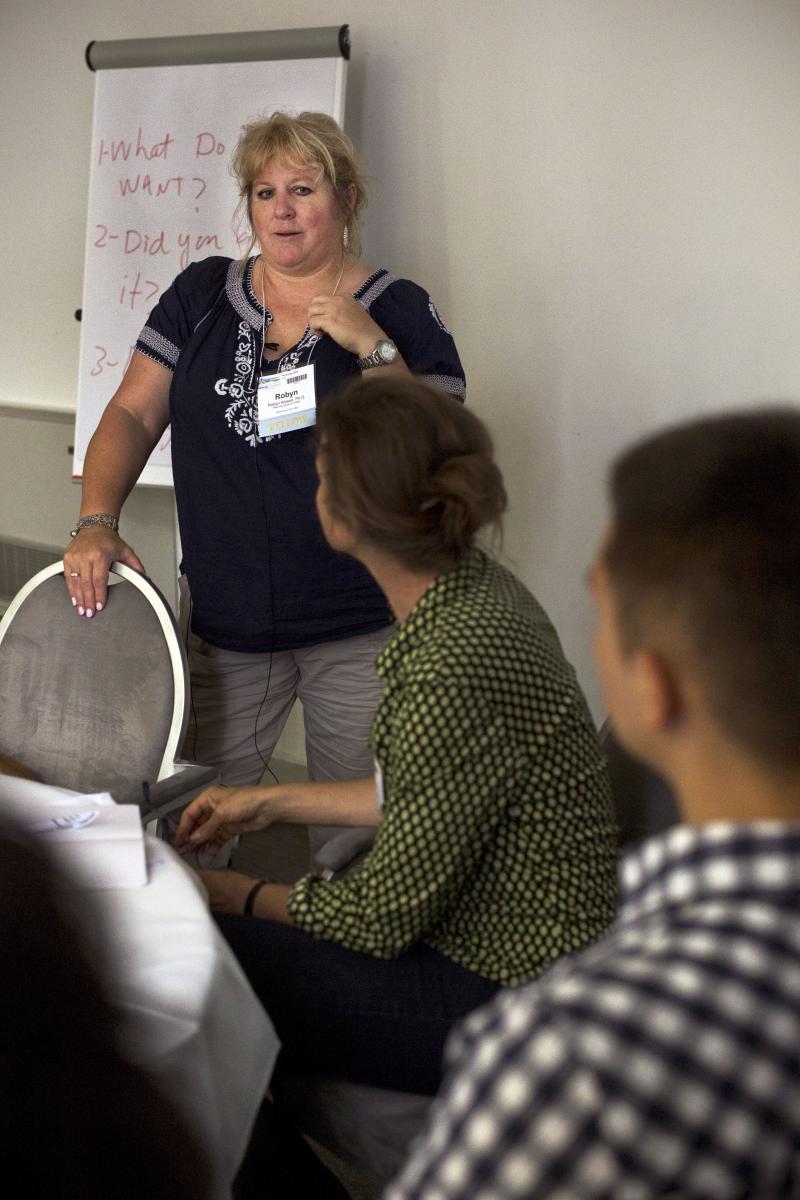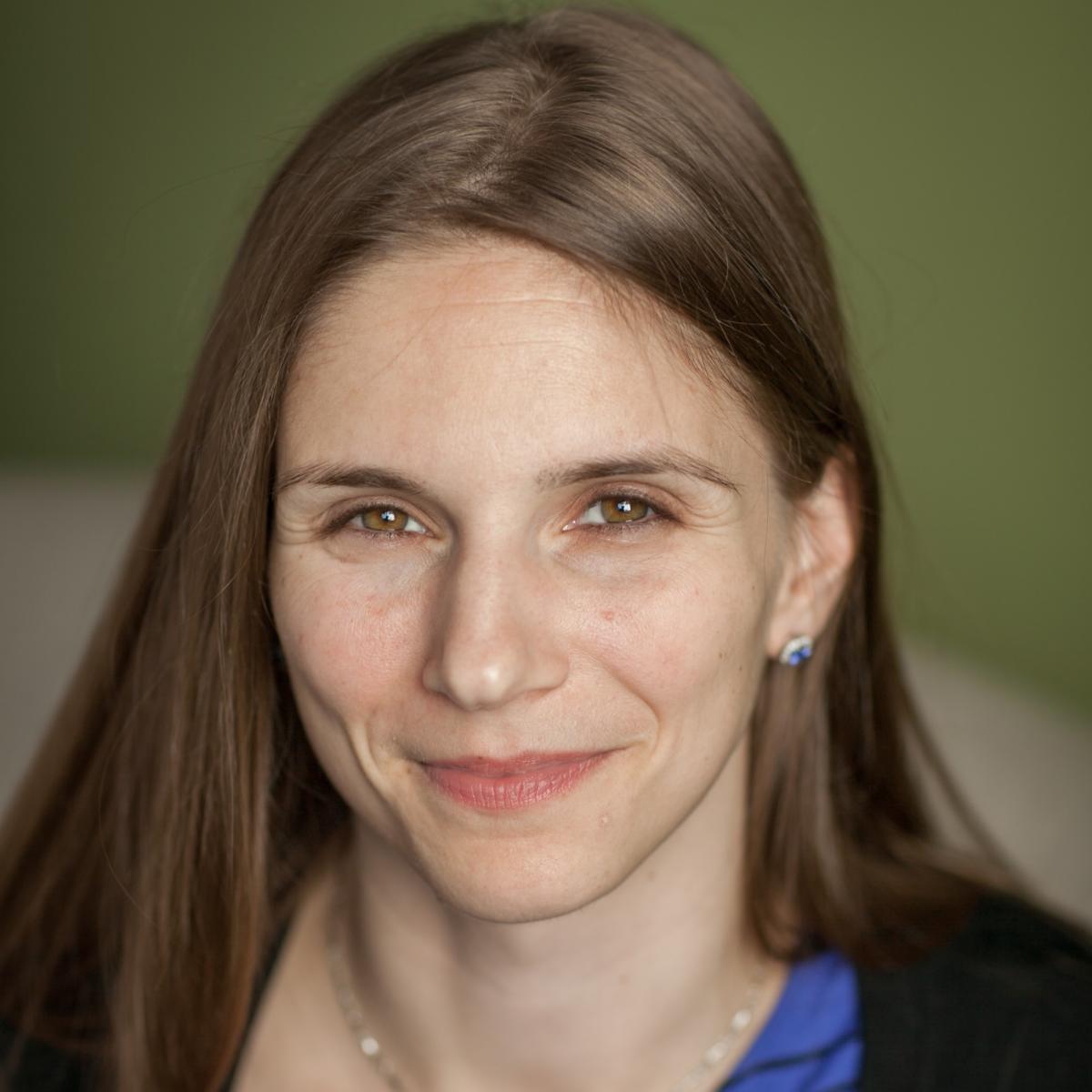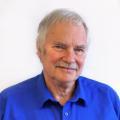Pre-Conference Intensive Workshops
Pre-Conference Intensive WorkshopsWhat to Expect
The 2023 Pre-Conference Workshops offer exciting new opportunities that will engage therapists and researchers of any skill level. Combining therapy role-plays, experiential exercises, case presentations, data graphics, focused lectures, and small group discussions, you can expect high-quality training from ACBS Pre-Conference Workshops. Continuing Education credits are available.
When & Where?
There will be in-person (24-25 July) workshops available. Pre-Conference workshop registration includes LIVE ONLY access to the workshop you select. These workshops will not be recorded.
ACBS Pre-Conference Workshops - IN-PERSON Event (24-25 July 2023)
These workshops will be held the two days immediately preceding the ACBS World Conference 2023.
Monday, 24 July 2023 from 9:00 a.m. to 5:15 p.m.
Tuesday, 25 July 2023 9:00 a.m. to 5:15 p.m.
(12 total contact hours)
They will be held at the University of Cyprus in Nicosia, Cyprus.
 Robyn Walser, Ph.D.
Robyn Walser, Ph.D.
(Clinical; Beginner, Intermediate, Advanced)
Aisling Leonard-Curtin, M.Sc., C.Psychol., Ps.S.I., David Gillanders, DClinPsychol
(Clinical; Beginner, Intermediate, Advanced)
Steven C. Hayes, Ph.D., Gijs Jansen, Ph.D., Joseph Ciarrochi, Ph.D.
(Clinical, Research; Beginner, Intermediate, Advanced)
Louise McHugh, Ph.D. and Alison Stapleton, Ph.D.
(Clinical, Research, Applied (in non-clinical settings); Intermediate, Advanced)
Louise Hayes, Ph.D, Duncan Gillard, Ph.D
(Clinical, Applied (in non-clinical settings); Beginner, Intermediate, Advanced)
Niklas Törneke, MD, Rikke Kjelgaard, M.Sc.
(Clinical, Research, Applied (in non-clinical settings); Beginner, Intermediate, Advanced)
Mavis Tsai, Ph.D., Sarah Sullivan-Singh, Ph.D., Barbara Kohlenberg, Ph.D.
(Clinical, Applied (in non-clinical settings); Beginner, Intermediate, Advanced)
Additional information about registrations, refunds, etc., can be found here.
Acceptance and Commitment Therapy and Process-Based Work: Treating Trauma and Other Challenging Life Events
Acceptance and Commitment Therapy and Process-Based Work: Treating Trauma and Other Challenging Life EventsAcceptance and Commitment Therapy and Process-Based Work: Treating Trauma and Other Challenging Life Events

Tuesday, 25 July 2023 from 9:00 a.m. to 5:15 p.m.
Dr. Robyn Walser is the Director of TL Consultation Services, Staff at the National Center for PTSD, and is Assistant Clinical Professor at University of California, Berkeley. She maintains an international training, consulting, and therapy practice as a licensed psychologist. Dr. Walser is an expert in Acceptance and Commitment Therapy (ACT) and has co-authored 7 books, including Learning ACT. She also has expertise in traumatic stress and substance abuse and has authored a number of articles and chapters and books on these topics. She has been doing ACT workshops since 1998; training in multiple formats and for multiple client problems. She is invested in developing innovative ways to translate science into practice and continues to do research and education on dissemination of ACT. She has had a number of leadership roles in international and national organizations, and she served as President of the Association for Contextual Behavioral Science, Dr. Walser is best known for her dynamic, warm, and challenging ACT trainings. She is often referred to as a clinician’s clinician. Her workshops feature a combination of lecture and experiential exercises designed to provide a unique learning opportunity in this state-of-the-art intervention.
Following this workshop participants will be able to:
1. Describe what is meant by therapeutic presence from an ACT perspective.
2. Explain what is meant by ACT processes in the therapeutic relationship.
3. Explain the levels of process and their role in treating clients with a trauma history.
4. Describe barriers to fluid implementation of ACT and how to work through these barriers in an ACT-consistent fashion using trauma work as an example.
5. Describe intrapersonal process from an ACT perspective.
6. Explain the purpose of self-disclosure, its use in ACT, and its role in trauma treatment.
7. Describe interpersonal process from an ACT perspective.
8. Explore interpersonal work and feedback's purpose and use in ACT.
9. Describe how the ACT relationship is vital to client outcomes.
10. Explain how case conceptualization guides the arc of ACT therapy.
Target Audience: Beginner, Intermediate, Advanced, Clinical
Components: Conceptual analysis, Literature review, Original data, Experiential exercises, Didactic presentation, Case presentation, Role play
Package Includes: A general certificate of attendance
Cutting edge of metaphor use
Cutting edge of metaphor useCutting edge of metaphor use


Tuesday, 25 July 2023 from 9:00 a.m. to 5:15 p.m.
This practical and clinically oriented workshop is designed to help practitioners apply the conclusions from basic science in using metaphor in the therapeutic dialogue in a way that supports clinical change. Drawing from the latest metaphor research, participants will learn how to skilfully use as well as create their own mighty metaphors to both impact and transform the lives of their clients. Participants will learn the framework for spontaneously catching and building metaphors relevant to their client, and how to flexibly tweak these to fit central processes of change as well as tailoring these to different therapeutic goals.
Through didactic presentations, live demonstrations and analysis, experiential exercises and roleplays, participants will get the opportunity to learn and practice the why, when and how to flexibly use metaphors as powerful vehicles of change.
About Niklas Törneke, MD:
Niklas Törneke is a Swedish psychiatrist and licenced psychotherapist with more than 30 years experience of clinical work. He belongs to the original group of peer reviewed ACT trainers and is an awarded fellow of ACBS. Amongst other books, book chapters and articles on contextual therapy he is the author of Metaphor in practice. A professionals guide to using the science of language in psychotherapy (2017).
About Rikke Kjelgaard, M.Sc.:
Rikke Kjelgaard is a licensed psychologist, peer-reviewed ACT trainer, an awarded fellow of the Association for Contextual Behavioral Science, author, speaker and chief rock’n’roller in her own business. Rikke is on a mission to help therapists thrive and to be brave and authentic helpers. Trained as a clinical psychologist, she has a 15 year background in the science of human behaviour and the practice of behaviour change. Rikke is a popular speaker at the Scandinavian as well as the international stage, and she is known to bring both passion and vulnerability to her talks. She transforms the lives of her audience by bringing evidence based strategies to her listeners in ways that are edible, manageable and impactful. Rikke is known to leave her audience in tears with compelling stories from her own life and to create extraordinary interactions between people.
On completion of this workshop, participants will be able to:
- Describe the place of metaphor in human language
- Describe the framework by which metaphors are built
- Implement specific clinical principles in working with metaphors in therapy
- Demonstrate how to use already established clinical metaphors in a way that is informed by current scientific knowledge
- Construct new metaphors in a therapeutic dialogue, focusing relevant clinical targets
- Demonstrate the ability to catch metaphors spontaneously used by a client and use them according to basic principles for therapeutic change
- Co-create metaphors with a client, as part of a natural dialogue
- Create at least one metaphor based on their own personal story
- Tweak metaphors to fit different therapeutic goals
- Define which metaphors support the core processes of psychological flexibility
Target Audience: Beginner, Intermediate, Advanced, Clinical, Applied, Not Clinical
Components: Conceptual analysis, Experiential exercises, Didactic presentation, Case Presentation, Role play
Package Includes: A general certificate of attendance
Exploring self-criticism through a CBS lens: Facilitating the journey towards self-acceptance and self-compassion in both clinicians and clients
Exploring self-criticism through a CBS lens: Facilitating the journey towards self-acceptance and self-compassion in both clinicians and clientsExploring self-criticism through a CBS lens: Facilitating the journey towards self-acceptance and self-compassion in both clinicians and clients


Self-criticism is a transdiagnostic process at the heart of many mental health problems (Schanche 2013), including social anxiety (Gautreau, et al. 2015), depression, eating disorders (Porter, Zelkowitz and Cole 2018, Williams and Levinson 2022, Zelkowitz and Cole 2019), binge eating, body image concerns (Noordenbos, Aliakbari and R. 2014), hoarding (Chou 2018), self-harm, emotional dysregulation (Zelkowitz and Cole 2019), perfectionism, and suicide probability (O'Neill, et al. 2021). Criticism from others is also a common experience for people who experience marginalization and discrimination because of their gender and sexual orientation (Chen, et al. 2022), and minority status. The life-time experience of criticism from others often results in heightened self-stigma, self-criticism, and experiences of shame that drive mental health problems and need to be explicitly addressed within therapy.
Clinicians are also at risk of heightened self-criticism due to the ambiguous nature of our work, the high standards we set for ourselves and our urgency and desire to help others. Clinicians in training and early career clinicians are particularly vulnerable to heightened self-criticism due to frequent evaluations and uncertainty (Richardson, Trusty and George 2018). Ongoing self-criticism can contribute to professional burnout, stress, mental and physical health problems in professionals, and can result in experienced practitioners leaving the profession.
Both clinician and client can benefit from having a range of strategies to alleviate the impact of self-critical thoughts and generate new, more helpful ways of responding to self-critical thoughts. Furthermore, clinicians in supervisory or training roles are in a position where they can cultivate a more compassionate response to self criticism in the next generation of clinicians. To be effective, these strategies need to accommodate individual differences in information-processing, personal identity, minority status and personal preferences of the individual sitting in front of them, and for themselves. Not everyone is able to visualize or use imagery in exercises, sustain longer mindfulness activities in session, or implement daily mindfulness practices, yet would benefit from developing deeper skills in self-compassion.
This experiential workshop will explore the phenomenology of self criticism through a CBS lens for both clinician, supervisor, and client. Participants will be presented with a thorough conceptualization of self-criticism as an inherent element of language structure and learning that sits within a cultural, social and minority stress context, and contributes to mental health problems and self-stigma. Participants will explore different experiences of self-criticism and the close relationship this can have with shame and avoidance. The function of self-criticism as being both helpful and unhelpful self-criticism will be considered in the context of many people’s reluctance to let go of self-critical patterns.
Across each session, participants will explore different strategies to address the process of self-criticism, drawing from compassion-focused therapy, acceptance and commitment therapy and other behavioral and emotional-regulation approaches to develop a ‘tool-kit’ of options when working with diverse people and communities. In doing so, participants will develop a greater ability to navigate their own self-criticism and offer themselves compassion as a professional.
About Sarah Pegrum, Ph.D.:
Dr. Sarah Pegrum graduated from her combined Master of Psychology (Clinical)/Doctor of Philosophy at Australian Catholic University in 2010. She has gone on to practice in Newfoundland, Canada, specializing in body image and eating disorders. Dr. Pegrum’s practice is integrative and draws heavily from contextual behavioural science. She was introduced to Acceptance and Commitment Therapy (ACT) in 2007, and since that point in time she has attended multiple workshops, trainings and conferences to hone her knowledge and skills. Dr. Pegrum is passionate about training others in ACT, and has been providing workshops, consultation, and supervision since 2013. In 2022 she became a ACBS Peer Reviewed trainer. She is currently the president of the ACBS Atlantic Canada chapter and runs the ACTing with Body Image Facebook group and meetings.
About Jennifer Kemp, MPsych (Clinical):
Jennifer Kemp, BSc(Psych)Hons, MPsych(Clinical), GradDipApplSc(Psychology of Coaching), MAPS, FCCLP. Jennifer Kemp is a privately practicing Clinical Psychologist based in Adelaide who works with older adolescents and adults experiencing perfectionism, eating disorders, body image problems, life-long anxiety, obsessive-compulsive disorder (OCD), and chronic illness. Most of these clients are neurodivergent. Using a neurodiversity-affirming approach, Jennifer weaves together acceptance and commitment therapy (ACT), behaviour therapy and compassion-focused approaches to help her clients improve their mental health, develop self-compassion skills and move towards self-acceptance. Jennifer balances her practice with writing, presenting, and supervision consultations. She is the author of “The ACT Workbook for Perfectionism: Build Your Best (Imperfect) Life Using Powerful Acceptance & Commitment Therapy and Self-Compassion Skills” and a sought-after speaker, trainer, and podcast guest, delivering live workshops and webinars to professionals internationally, including for the Australian Psychological Society, Association for Contextual Behavioral Science (ACBS), and International OCD Foundation (IOCDF) among others.
On completion of this workshop, participants will be able to:
1. Describe contextual factors that underpin the self-criticism for clients and clinicians, including the impact of minority status and discrimination on individual experiences of self-stigma and self-criticism.
2. Explain how self-criticism is a transdiagnostic process at the heart of many mental health and interpersonal difficulties including social anxiety, depression, perfectionism, body-image problems, eating disorders and burnout.
3. Identify unhelpful patterns of responding to self-criticism in self and others, and how this can perpetuate self-critical thinking patterns and interferes with living a valued life through self-reflective and experiential exercises.
4. Describe the process of self-criticism using a clinical behavior analysis framework, applying a functional analysis approach to working with self-criticism in self and clients.
5. Demonstrate alternate responses to self-criticism to facilitate participants’ connection with values as a clinician through role plays, case studies and group discussion.
6. Describe how to make peace with the self-critic by transforming the function of self-criticism, opening the door to greater self-compassion.
7. Identify common challenges and barriers clients experience to self compassion including a reluctance to let go of self-critical patterns and how to respond to this in therapy.
8. Drawing on diverse therapeutic approaches both within CBS and elsewhere, demonstrate several different approaches to working with self-criticism that accommodate individual differences in information-processing, personal identity, minority status and personal preference, and help people respond to self-criticism in ways that help them move towards a valued life.
Target Audience: Beginner, Intermediate, Advanced, Clinical
Components: Conceptual analysis, Experiential exercises, Didactic presentation, Case presentation, Role play
Package Includes: A general certificate of attendance
Families in Conflict: Working with Complex and Challenging Relationships in Therapy
Families in Conflict: Working with Complex and Challenging Relationships in TherapyFamilies in Conflict: Working with Complex and Challenging Relationships in Therapy


Violence and aggression can be prominent in families experiencing conflict, devastatingly impacting those affected. Working with families where violence is present poses unique challenges for clinicians, both personally and in terms of effectively and safely intervening. Many clinicians actively avoid this work, or do not feel adequately trained and resourced when these clients present in the therapy room. Although rarely discussed and taught outside of forensic psychology, significant advances have been made in this area, which can empower clinicians to significantly impact the lives of those affected.
With a combined professional experience of over 25 years between them, Tiffany Rochester and Daniel Simsion have always worked at the pointy end of clinical presentations - individuals and families caught up in cycles of violence and conflict. Tiffany and Daniel are committed to working within a contextual behavioural framework to help vulnerable people and families that others often consider “unlovely” or “undesirable”, and see fostering psychological flexibility and resilience as an achievable outcome. The harrowing alternative is often lengthy, costly, ineffective court processes that take years of people’s lives and achieve poor outcomes.
In this practical and experiential workshop, participants will be taught how to conceptualise high-conflict and violent families and individuals through the lens of psychological inflexibility. We will show you how a compassionate, systemic focus fosters long-lasting change and breaks multi-generational cycles of violence and trauma. We will use experiential exercises to demonstrate interventions that bring healing, reconnection and collaboration to fractured, adversarial systems. We will also include critical information about the support and resourcing clinics need to have in place to work successfully with this population and protect staff from burnout.
Drawing on Daniel’s experience in forensic settings, participants will learn how to:
- assess the multi-generational, contextual history and cycle of violence;
- explore the challenges in working with perpetrators of acts of aggression and violence; and
- explore successful contextual behavioural science interventions for bringing about adaptive prosocial change.
Drawing on Tiffany’s experience in high-conflict separations, participants will learn how to:
- Analyse the level of conflict in a separation dynamic through the lens of psychological inflexibility.
- Use practical therapy interventions to support separated families in the aftermath of aggression and conflict, including: How to help families set and keep healthy boundaries, develop collaborative co-parenting practices in contrast to a history of conflict and trauma, and
strategies to facilitate healthy parent-child relationships and relationship repair.
About Tiffany Rochester, BPsych, MAppPsych(Clin):
Tiffany is the Founding CEO of Co-Parenting Companion and The Same Mountain. She has provided Clinical Psychology services in Western Australia for 18 years. Tiffany has always worked within a systems framework with a particular interest in complex families. In her early career, she trained and worked in a multisystemic therapy program with the families of serious, repeat juvenile offenders. In recent years, she has focused on working systemically with high-conflict families entrenched in the Family Court. Tiffany is passionate about applying an ACT/CBS lens to working with families and sees that practitioners who work from a contextual behavioural analysis/ACT framework are ideally and uniquely skilled for working with complex systems.
Tiffany provides supervision to psychologists across Australia and Singapore and previously served as President, Conference Chair, and Board Member of the Australian and New Zealand chapter for ANZ ACBS.
About Daniel Simsion, LLB, BPsych, DPsych:
Dr Daniel Simsion is a senior clinical psychologist with the Victorian government specialist forensic mental health service, Forensicare. Following undergraduate studies in law and psychology, he completed his Doctorate in clinical psychology at La Trobe University. He has worked across forensic hospital and prison-based units, providing psychological assessment and intervention for people within the forensic system. He is currently based on a specialist prison-based unit that works to address complex and challenging behaviours. He is also a member of the La Trobe University Actualise CBS lab and has served as secretary, president and conference co-chair of the Australian and New Zealand chapter of the ACBS.
On completion of this workshop, participants will be able to:
1. Explain the multigenerational cycle of violence.
2. List drivers of risk that predict aggression and perpetuating factors that predict continued violence use.
3. Analyse separated family dynamics using a psychological flexibility framework.
4. Select appropriate ACT interventions for individuals and systems with a history of conflict and aggression.
5. Define the challenges in working with aggression and violence
6. Explain essential safety considerations for working with populations with a history of conflict and aggression.
7. Describe the most protective factors for children involved in high-conflict separation and those that elevate their risks.
8. Describe critical issues to consider to ensure therapy supports, rather than inadvertently hinders, the family and protects the client (and the practitioner!) from further court involvement
9. List therapist variables that make things better - or worse - for the client.
10. Explain flexible therapy solutions within an Acceptance & Commitment Therapy framework to move families from conflict to collaboration, no matter which part of the system the clinician is working with.
Target Audience: Intermediate, Advanced, Clinical
Components: Conceptual analysis, Literature review, Experiential exercises, Didactic presentation, Case presentation, Role play
Package Includes: A general certificate of attendance
Games and Frames: Enhancing your ACT with Functional Assessment and Relational Frame Theory
Games and Frames: Enhancing your ACT with Functional Assessment and Relational Frame TheoryGames and Frames: Enhancing your ACT with Functional Assessment and Relational Frame Theory


About Evan Marks, LCSW-C:
Evan Marks, LCSW-C is a licensed clinical social worker and Co-founder of True North Therapy and Training, a private therapy practice located in Bethesda Maryland. He specializes in the use of evidenced based therapies including ACT and other contextual behavioral therapies, to treat individuals with substance use, mood, and anxiety disorders. Evan is also a former member at large for the Mid-Atlantic Chapter of the Association for Contextual Behavioral Science.
About Miranda Morris, Ph.D.:
Miranda Morris, PhD is a psychologist in Bethesda, MD. She is a Peer Reviewed ACT Trainer, and she conducts regular workshops in Acceptance and Commitment Therapy (ACT) and related therapies including Functional Analytic Psychotherapy (FAP) and clinical applications of Relational Frame Theory (RFT) She is currently Past President of the Board of the Association of Contextual Behavioral Science (ACBS). In addition, Miranda is an active member of the Mid Atlantic Chapter of ACBS Chapter and their ACT Carolinas affiliate. In her paid-work life, she is the Co-founder of True North Therapy and Training, a group dedicated to sharing contextual behavioral therapies with clients, practitioners, and the broader community.
On completion of this workshop, participants will be able to:
1. Describe the ABC model of behavioral analysis
2. Describe mutual entailment
3. Describe combinatorial mutual entailment
4. Describe transformation of stimulus function
5. Describe the pragmatic truth criterion in functional contextualism
6. Explain the term ""context"" as used in functional contextualism
7. Explain the term ""function"" as used in functional contextualism
8. Describe at least one goal in clinical RFT
9. Identify and describe at least 3 relational frames
10. Describe what is meant by ‘frozen metaphor”
11. Identify 3 types of rule governed behavior
Target Audience: Beginner, Intermediate, Clinical
Components: Literature review, Experiential exercises, Didactic presentation, Case presentation, Role play
Package Includes: A general certificate of attendance
Harnessing the Power of Language in Psychotherapy: Clinically-Applied RFT
Harnessing the Power of Language in Psychotherapy: Clinically-Applied RFTHarnessing the Power of Language in Psychotherapy: Clinically-Applied RFT


The theory of language and cognition known as RFT (relational frame theory) was operationalized as a therapeutic approach in the landmark book, Mastering the Clinical Conversation (Villatte, Villatte, & Hayes 2015). This approach, grounded in contextual behavioral science, can function to enhance other psychotherapeutic models or stand on its own by providing clinicians with strategic ways to harness the power of language in psychotherapy. Within this framework, clinically-applied RFT includes two overarching therapeutic goals, four interdependent processes that comprise the therapeutic approach, a primary behavioral change strategy, and relationally framed interventions to effectively assess and shape behavior.
In this experiential and practical workshop for beginner-to-intermediate level contextual behavioral clinicians, participants will be introduced to this model through a combination of didactics, interactive exercises, case presentations, demonstrations, and small group practice sessions that focus on targeted clinical skill-building. After getting acquainted with the basic properties of RFT in an easily accessible and digestible manner, the different types of relational frames will be reviewed with respect to clinical relevance. Practitioners will experiment with implementing them as psychotherapeutic interventions designed to evoke four functional classes of behavior that are critical to functional coherence and flexible context sensitivity, the two overarching goals of clinically-applied RFT. Accordingly, there will be opportunities to assess coherence and context sensitivity across clinical presentations, including with respect to relational inflexibility, language-influenced experiential avoidance, and rule-governed behavior. Participants will learn how an experiential, pragmatic, and integrative approach to therapy can naturally evoke awareness, agency, efficacy, and acceptance/inclusion of self. Participants will practice employing the key behavioral change strategy of altering the (symbolic) context to transform the function of private events (i.e. relations), including in the application and/or creation of metaphors. Given that languaging is inherently interpersonal, practitioners will also experiment with ways of enhancing the quality of the therapeutic relationship with relational framing. Socio-cultural considerations and implications will be interwoven throughout.
About Lou Lasprugato, MFT:
Lou Lasprugato, MFT, is a licensed Marriage and Family Therapist, with private practices in both California and Virginia (United States), and Peer-Reviewed Trainer in Acceptance and Commitment Therapy (ACT) with the Association for Contextual Behavioral Science. Lou has worked as a psychotherapist in a variety of settings over the years, including an intensive outpatient program at Kaiser Permanente that he subsequently managed, and an integrative medicine program at Sutter Health. He has facilitated dozens of workshops internationally on ACT and mindfulness, as well as co-created courses and lectures on nutritional psychology, stress system restorative therapy, and integrative mental health. Lou has also provided supervision to other mental health professionals and continues to provide individual consultation on ACT and other contextual behavioral approaches. He earned his Master of Arts in Counseling Psychology, with a specialization in Holistic Studies from Lesley University, Cambridge, MA, following a career as a professional musician.
About Phillip Cha, MFT:
Phillip Cha, MFT, is a licensed Marriage and Family Therapist with over 20 years of experience in community mental health under UCSF Citywide Case Management. Phillip also has a private practice in San Francisco and regularly provides culturally informed ACT and clinical RFT trainings throughout the Bay Area and beyond. More recently, Phillip has provided extensive ACT and clinical RFT trainings to counselors in Myanmar (formerly known as Burma) as adjunct faculty member at Myanmar Clinical Psychology Consortium from 2018-2022. Phillip is passionate about exploring ways in which contextual behavioral therapies can be applied across different communities and in ways that promote wellness and justice particularly for those who are marginalized.
On completion of this program, participants will be able to:
- Describe language (and cognition) as a learned behavior of relating within a sociocultural context
- Delineate the different known types of relational frames, their clinical applications and cultural considerations
- Apply relational frames as interventions designed to evoke four functional classes of behavior
- Utilize relational framing to enhance the quality of the therapeutic relationship
- Describe how language influences the three-term contingency model of functional analysis
- Adopt an experiential, pragmatic, integrative, and contextual (EPIC) approach to shaping human behavior
- Demonstrate how to transform the function of symbolic stimuli and relations by altering their context with language, including through the use of metaphors
- Explain how psychological problems can be perpetuated by relational inflexibility, language-driven experiential avoidance, and rule-governed behavior
- Demonstrate how to assess coherence and context sensitivity
- Demonstrate how to shape functional coherence and flexible context sensitivity
Target Audience: Beginner, Intermediate, Clinical
Components: Experiential exercises, Didactic presentation, Case presentation, Role play
Package Includes: A general certificate of attendance
Helping young people find themselves and connect with others: Using CBS to build a flexible self and develop flexible social abilities
Helping young people find themselves and connect with others: Using CBS to build a flexible self and develop flexible social abilitiesGames and Frames: Enhancing your ACT with Functional Assessment and Relational Frame Theory


Tuesday, 25 July 2023 from 9:00 a.m. to 5:00 p.m.
We will not cover the basics of the model, but the workshop will still be applicable to those new to the model as we will provide reading and material on the basics before the workshop.
About Louise Hayes, Ph.D.:
Dr Louise Hayes is a clinical psychologist, author, international speaker, and educator. She is a Fellow and Past President of the Association for Contextual Behavioural Science. Louise currently holds a position as Adjunct Senior Research Fellow at La Trobe University, where she collaborates on projects using contextual behavioural science. She is a peer-reviewed Acceptance and Commitment Therapy/Training (ACT) trainer engaged in training professionals worldwide. She is also a certified Buddhist meditation teacher in the Dzogchen tradition. Together with Joseph Ciarrochi, she developed DNA-v, a leading acceptance and commitment therapy model that has sparked international studies. In 2022 she released a new book for helping adults thrive in the face of change – What Makes You Stronger. She is the co-author of two best-selling books for young people – Get Out of Your Mind and Into Your Life for Teenagers; and Your Life Your Way. She is also the co-author of the practitioner book, The Thriving Adolescent. Louise is an active clinician, working with adults and adolescents. Louise’s passion project and the highlight of her work is establishing a not-for-profit endeavour of taking professionals on the journey of their life into the Himalayas to develop their mindful way of being while raising funds to help children in remote Nepal.
About Duncan Gillard, Ph.D.:
Duncan is a HCPC (Health and Care Professions Council) registered Senior Educational Psychologist and an experienced ACT & DNA-V practitioner and trainer. Duncan is the co-author of the popular self-help book Acceptance and Commitment Therapy (ACT) for Dummies and of several peer-reviewed articles on the subjects of ACT and Contextual Behavioural Science (CBS). Primarily, Duncan’s work focuses on whole-school and targeted interventions to promote and improve children’s wellbeing and resilience, as well as on the delivery of group and individually-based ACT coaching interventions to support teachers’ wellbeing and valued-living.
On completion of this workshop, participants will be able to:
1. Social – Discuss the literature on social change and its influence on the well-being of young people.
2. Social – Demonstrate and practice strategies to strengthen relationships, such as family and friendships.
3. Social - Describe how to use DNA-v in group contexts such as classrooms and community groups.
4. Social - Apply prosocial principles with adolescents (including the core design principles).
5. Social - Demonstrate and apply strategies for working with difficult social interactions.
6. Self - Demonstrate how to intervene with adolescent self and to apply flexibility interventions.
7. Self - Demonstrate and practice strategies to build physiological and emotional balance.
8. Self - Demonstrate and practice flexibility strategies with their conceptual self.
9. Self - Discuss procedures to support achievement goals.
10. Self - Demonstrate and practice procedures to build compassionate awareness.
Target Audience: Beginner, Intermediate, Clinical, Applied, Not Clinical
Components: Experiential exercises, Didactic presentation
Package Includes: A general certificate of attendance
Here, Now, and Between Us: Functional Analytic Psychotherapy and the Power of the Therapeutic Relationship
Here, Now, and Between Us: Functional Analytic Psychotherapy and the Power of the Therapeutic Relationship
Here, Now, and Between Us: Functional Analytic Psychotherapy and the Power of the Therapeutic Relationship



Tuesday, 25 July 2023 from 9:00 a.m. to 5:15 p.m.
Mavis Tsai, Ph.D., co-originator of FAP, is a clinical psychologist and senior research scientist at University of Washington’s Center for Science of Social Connection. She is the co-author of five books on FAP (some of which have been translated into Portuguese, Spanish, Japanese, Italian, Korean and Persian), and over 75 articles and book chapters. She is an ACBS Fellow, and received the Washington State Psychological Association’s Distinguished Psychologist Award in recognition of significant contributions to the field of psychology. She gave a TEDx talk “Create Extraordinary Interactions”, has presented “Master Clinician” sessions at the Association for Behavior and Cognitive Therapy, has led numerous workshops nationally and internationally, and has supervised clinicians all over the world in FAP. She is proud to be named by New Harbinger Publications as one of “13 Badass Psychologists… Who Happen to be Women”, and literally kicks ass as an advanced practitioner of the martial art of Kajukenbo. She loves to climb; the highest peak she has summited is Mt. Kalapathar (over 18,500 feet or 5600 meters) in Nepal. As Founder of the Nonprofit Organization ‘Awareness, Courage & Love Global Project” which brings FAP to the general public, she trains volunteers to lead chapters in six continents to create a worldwide- network of open-hearted change-seekers who strive to meet life’s challenges through deepening interpersonal connection and rising to live more true to themselves.
About Sarah Sullivan-Singh, Ph.D.:
Sarah Sullivan-Singh, PhD, earned her doctoral degree in clinical psychology from UCLA and completed a postdoctoral fellowship within the University of Washington Rehabilitation Medicine Department before beginning her independent practice. She is a Clinical Instructor within the University of Washington (UW) Psychology Department where she supervises graduate students treating clients using ACT and FAP. Dr. Sullivan-Singh also regularly guest lectures to psychology interns in the UW Department of Psychiatry and Biobehavioral Sciences. She is a certified FAP trainer and routinely teaches both students and professionals through individual supervision/consultation as well as workshops and online courses. Dr. Sullivan-Singh has also worked on treatment development for and provided clinical supervision within a randomized-controlled trial of FAP at the UW Center for the Science of Social Connection. As partner of The Seattle Clinic, a collective of independent practitioners focused on evidence-based practice, Dr. Sullivan-Singh is fortunate to be surrounded by students and colleagues who support her in following the lifelong path of encountering her gaps in awareness and knowledge and, in response, learning to acknowledge and address them – and through that process constructing increasingly authentic relationships with greater healing potential.
About Barbara Kohlenberg, Ph.D.:
Barbara Kohlenberg, Ph.D. is a Professor in the Department of Psychiatry and Behavioral Science and also in Family and Community Medicine. She is a clinical psychologist, who received her Ph.D. at the University of Nevada, Reno. Her NIH funded research has focused on Acceptance and Commitment Therapy (ACT) and Functional Analytic Psychotherapy (FAP) and their integration and application with substance use disorders and stigma. Dr. Kohlenberg is an ACT trainer and a FAP trainer, and has contributed to the literature in these areas and has conducted trainings internationally. She is interested in psychotherapy training in psychiatric residency programs, and in growing bedside manner among family medicine residents. She has deep interests in the role of compassion, acceptance, and relationship in promoting behavior change. She cherishes direct patient care, as well as training psychiatry residents. Helping both patients and residents learn that one can change one’s relationship with suffering rather than having to “get rid” of suffering is meaningful for her.
Outside of work Dr. Kohlenberg loves cooking, eating, walking, reading/listening to podcasts, and creating and participating in nurturing communities. She loves the beauty of our desert climate while always also missing the green and grandeur of the Pacific Northwest, where she grew up.
On completion of this workshop, participants will be able to:
1. Describe the 5 Rules of FAP and the behavioral theory underlying them.
2. Identify both functional classes and specific examples of problematic and improved in-session client behavior.
3. Understand when commonly used interventions can be inadvertently counter-therapeutic.
4. Demonstrate ability to recognize and respond therapeutically to both client in-session problematic behaviors and target behaviors using strategies adapted to your clients’ needs.
5. Prepare a FAP case conceptualization for one client that demonstrates the application of functional analysis to client behavior and awareness of the impact of your own therapist behavior on the client.
6. Demonstrate using all five FAP rules to facilitate generalization of client in-session progress.
7. Identify, understand and address how your clients can activate your own problematic behaviors such that you can enhance your target behaviors as a therapist.
8. Discuss ethical considerations related to cultivating intense therapeutic relationships with clients when using FAP.
9. Explore, receive, and express the deeper recesses of your true self -- what feels unseen, unmet, and unheld -- so that you can increase intensity, depth, and connection in your therapeutic relationships.
10. Describe Live with Awareness, Courage & Love protocols and ways to adapt them to your clients, family and friends, and community.
Target Audience: Beginner, Intermediate, Advanced, Clinical
Components: Conceptual analysis, Experiential exercises, Didactic presentation, Case Presentation, Role play
Package Includes: A general certificate of attendance
Putting the Context Back in Contextual Behavioral Science: Applying RFT to Rules, Self, and Values
Putting the Context Back in Contextual Behavioral Science: Applying RFT to Rules, Self, and ValuesPutting the Context Back in Contextual Behavioral Science: Applying RFT to Rules, Self, and Values


Tuesday, 25 July 2023 from 9:00 a.m. to 5:15 p.m.
Do you or the people you work with ever struggle to find a stable sense of self or self-awareness?
Do you or the people you work with ever feel aimless, crave purpose, or find it difficult to prioritize competing values?
‘Putting the Context Back in Contextual Behavioral Science’ (CBS) aims to work through the relational frame theory (RFT) approach to rules, the self, and values, addressing common misconceptions and barriers professionals may face when working with these areas in applied and research contexts. First, we will tackle the issue of rule-based insensitivity, addressing questions such as: Do rules make us insensitive or less sensitive to shifting contingencies? Is “rigid rule-following” merely repetitive or routine behaviors? What determines whether rule-following is rigid? Is people-pleasing always rigid? We will then explore how metaphor might be a useful tool to increase flexible, context-sensitive rule-following. We will further identify ways to help people clarify their values, means of assessing values clarity, and strategies to conceptualize and honor competing values. We will also discuss whether “away moves” (i.e., actions that bring us further away from who and where we want to be) are ever helpful. Next we will move onto the most important relationship any individual has, the relationship they have with themselves. We will address important misconceptions around the utility of identity labels from a CBS perspective, the links between selfing, rules, and values, and ways to foster a flexible sense of self while also respecting and appreciating your unique identity and learning history. Through experiential exercises, we will bring “functional coherence” to the fore; in simple terms, recognizing that labels are useful insofar as they work for us. We will also contact self-as-context, the stable perspective from which we can observe all self-relevant processes.
Louise McHugh is a Professor of Psychology at University College Dublin. She is a world leading expert in Contextual Behavioural Science (CBS), Relational Frame Theory (RFT) and Acceptance and Commitment Therapy (ACT). She has published over 100 papers and two books in the area. Prof. McHugh is the Director of the University College Dublin CBS lab and a peer reviewed ACT Trainer. She has been a Fellow of ACBS since 2014 and is the president elect for the UK and ROI ACBS Chapter.
About Alison Stapleton, Ph.D.:
Alison Stapleton is a Researcher at Smithsfield Clinic and Lecturer in Psychology at Maynooth University and Dublin Business School, Ireland. She collaborates on a multitude of psychological research projects and regularly delivers trainings both nationally and internationally. Alison is a member of the Editorial Board for the Journal of Contextual Behavioral Science, serves on the Steering Committee for the ACBS relational frame theory special interest group, and currently works at ACT Now Purposeful Living, a leading provider of ACT training in Ireland. Alison’s doctoral dissertation focused on selfing and rule-governed behavior in accordance with relational frame theory (RFT); part of which involved developing and testing procedures designed to reduce problematic rule-following. Alison has published 12 peer-reviewed articles and co-authored two book chapters on these topics, having recently contributed to The Oxford Handbook of Acceptance and Commitment Therapy. Alison is known for her ability to cut through jargon and make RFT accessible, a practice she believes is imperative if RFT is to continue to make meaningful impact.
Following this workshop participants will be able to:
- Summarize recent developments in CBS in the areas of rules, the self, and values.
- Demonstrate an understanding of functional contextualism, the philosophy of science said to underpin ACT and RFT.
- Outline common misconceptions in the areas of rules, the self, and values (e.g., that rigidity refers to repetitive behaviors).
- Address how to resolve common misconceptions in the areas of rules, the self, and values.
- Conduct collaborative functional analysis of challenges that may arise in the areas of rule-following, the self, and values alongside the people you work with.
- Design RFT-consistent exercises for rules, the self, and values that are tailored to the people you work with.
- Adapt existing interventions by adding RFT-consistent kernels/amending interventions so they are consistent with RFT.
- Apply and experiment with RFT-consistent interventions targeting rigid rule-following, the self, and values.
- Utilize single-case and idiographic approaches to individualize treatment and examine intervention effectiveness.
- Utilize cutting-edge research to enhance practice.
Target Audience: Intermediate, Advanced, Clinical, Research
Components: Conceptual analysis, Original data, Experiential exercises, Role play
Package Includes: A general certificate of attendance
Starting from where you are at: how to integrate ACT and other Contextual Behavioural Principles into your work.
Starting from where you are at: how to integrate ACT and other Contextual Behavioural Principles into your work.Starting from where you are at: how to integrate ACT and other Contextual Behavioural Principles into your work.


Tuesday, 25 July 2023 from 9:00 a.m. to 5:15 p.m.
Aisling is a chartered counselling psychologist and Peer Reviewed ACT Trainer. She is co-director of ACT Now Purposeful Living and Senior Psychologist at ADHD Ireland. Aisling teaches about ACT and working with gender, sexual and neuro minorities on a number of Masters and Doctorate programmes across the fields of psychology, psychotherapy and coaching. She has led trainings on these topics internationally for over a decade. Aisling co-authored The Power of Small, an ACT self-help book, a number one best-seller in non-fiction in Ireland, that has been translated into four languages. She co-edited Mindfulness and Acceptance for Gender and Sexual Minorities. Aisling has provided clinical input and supervision for research in the areas of ACT for addictions, practitioners competencies in working with sexual minorities, ACT for adolescents, online ACT for anxiety, ACT for those with Parkinson’s Disease and their loved ones, ACT-based psychoeducation for adult ADHD. Aisling is herself a sexual and neuro minority and is passionate about making ACT accessible to all, particularly those who are members of marginalized or frequently stigmatized groups. Aisling lives with her wife and cats in rural Wexford, Ireland surrounded by trees, a river and close to the sea. She loves to improvise, sing, write, spend quality time with her nearest and dearest and be in nature.
About David Gillanders, DClinPsychol:
David is Head of Clinical Psychology at the University of Edinburgh, where he provides subject leadership, department management, teaching and research. His primary teaching focus is training others to deliver Acceptance and Commitment Therapy. His research investigates psychological flexibility as an influential factor across a broad range of areas, including ACT interventions for IBS, diverse chronic health problems, cancer, transition to palliative care, and staff wellbeing in palliative care services. He has extensive experience in applying ACT with people with long term health conditions, supervising therapists and providing ACT based coaching for health professionals. He is a Fellow of ACBS and a Peer Reviewed ACT Trainer. David is also a husband, and a father of three, practices karate and loves to sing. Like all human beings, his mind can get in his way, he is not a model of perfect behaviour AND we are all works in progress, right ?
Following this workshop participants will be able to:
- Describe the functional contextual perspective that underlies ACT (i.e., ACT's philosophy recognizes that the purpose of any behavior varies for individual clients across contexts).
- Apply functional behavioural principles to themselves and others.
- Provide an overview of the ACT model and its core components.
- Explain the ACT model of Open, Aware and Engaged from the inside.
- Demonstrate mindfulness-based skills that enable clients to make more informed and empowered choices towards what matters most to them.
- Apply values work personally and professionally to create meaningful, sustainable change.
- Describe how to integrate ACT and functional contextual principles and methods within existing ways of working, making these principles accessible and relevant to your work and your diverse client groups.
- Demonstrate some of the skills needed to cultivate acceptance of unwanted internal experiences.
- Demonstrate the skill of delivering experiential exercises and ways of talking that model, evoke and reinforce Psychological Flexibility in others.
-
Utilise a range of experiential ways of working that will allow you and your clients to identify moves that bring you closer toward and further away from who and where you want to be, recognizing the costs and benefits of both, to find a sustainable path forward for positive change.
Target Audience: Beginner
Components: Conceptual analysis, Experiential exercises, Didactic presentation, Case presentation, Role play
Package Includes: A general certificate of attendance
The Foundations of Compassion Focused Therapy (CFT): A Trauma-Informed Introduction to CFT for a Traumatic World
The Foundations of Compassion Focused Therapy (CFT): A Trauma-Informed Introduction to CFT for a Traumatic WorldThe Foundations of Compassion Focused Therapy (CFT): A Trauma-Informed Introduction to CFT for a Traumatic World



About Professor Paul Gilbert, PhD/OBE:
Paul Gilbert, FBPsS, PhD, OBE is Professor of Clinical Psychology at the University of Derby and honorary visiting Prof at the University of Queensland. Until his retirement from the NHS in 2016 he was Consultant Clinical Psychologist for over 40 years. He has researched evolutionary approaches to psychopathology with a special focus on mood, shame and self-criticism in various mental health difficulties for which Compassion Focused Therapy was developed. He was made a Fellow of the British Psychological Society in 1993, president of the BABCP 2002-2004, and was a member of the first British Governments’ NICE guidelines for depression. He has written/edited 23 books and over 300 papers and book chapters. In 2006 he established the Compassionate Mind Foundation as an international charity with the mission statement: To promote wellbeing through the scientific understanding and application of compassion (www.compassionatemind.co.uk). There are now a number of sister foundations in other countries. He was awarded an OBE by the Queen in March 2011 for services to mental health. He established and is the Director of the Centre for Compassion Research and Training at Derby University UK. His latest book is a major edited book with Prof G Simos (2022) Compassion: Clinical practice and Applications (Routledge).
About Dennis Tirch PhD:
Dr. Dennis Tirch is the Founding Director of The Center for CFT in New York; President of The Compassionate Mind Foundation. USA; Past-President and Fellow of The Association for Contextual Behavioral Science (ACBS) and an Associate Clinical Professor at Mt. Sinai Medical Center. Dr Tirch is the author of seven books, and numerous chapters and peer reviewed articles on mindfulness, acceptance and compassion in psychology. Dr Tirch regularly conducts Compassion Focused ACT and CFT trainings & workshops globally. He is also a Dharma Holder and lay teacher of Zen Buddhism; a Diplomate, Fellow & Certified Consultant for The Academy of Cognitive Behavioral Therapy, and a Founding Fellow and Past President of both the NYC-CBT association & NYC-ACBS. Dr. Tirch serves as a mindfulness, wellness and performance coach to leading figures in business, science and policy design. Dr. Tirch regularly presents workshops and trainings globally, in person and via video-conference. His work has been featured by the New York Times, Wall Street Journal and other media outlets.
About Laura Silberstein-Tirch, PsyD:
Dr. Laura Silberstein is the Director of The Center for CFT in New York and board member of the Compassionate Mind Foundation, USA. She has served as an Adjunct Assistant Professor at Albert Einstein College of Medicine. Dr Silberstein-Tirch is the co-author of four books, including How to Be Nice To Yourself. Dr Silberstein-Tirch regularly conducts trainings and workshops on Compassion Focused ACT and CFT internationally. She is a Past President of NYC-ACBS & Compassion Focused SIG of ACBS. Dr. Silberstein-Tirch is a founding member and Past President of the Women of ACBS SIG.
About Chia-Ying Chou, PhD:
Chia-Ying Chou, PhD is the founder and director of the San Francisco Center for Compassion Focused Therapies (SFCompassion)- a group psychotherapy practice and a training hub for Compassion Focused Therapy (CFT) in California. Dr. Chou obtained her PhD from University College London with a research focus on trauma. With the understanding that most forms of difficulty letting go can be rooted in trauma, during her postdoctoral years in the University of California, San Francisco, she started to develop a group CFT protocol for hoarding, CFT-HD, which is trauma-informed. As a specialist in hoarding and trauma, Dr. Chou’s clinical and research interest focus on the connection between difficult life experiences and the blocks and fears of letting go and letting in. Her practice, SFCompassion, is one of the few private practices in the world that conducts practice-based research. Besides research and clinical work, Dr. Chou provides training, supervision, and consultation for clinicians on CFT and hoarding worldwide. Her and her team at SFCompassion found a program, Better Treatment for Hoarding, where clinicians, researchers, and advocates come together to bring forth compassion-based public education, support, and research about hoarding.
On completion of this workshop, participants will be able to:
1. Participants will be able to describe the foundational evolutionary model of compassion, mindfulness and emotion used in CFT.
2. Participants will be able to use the CFT "Three Circle Model" of emotion regulation in clinical contexts.
3. Participants will understand and be able to discuss and utilize a trauma sensitive and trauma informed approach to CFT
4. Participants will be able to utilize the therapeutic relationship to create a context of relational safeness in the therapy room as a part of CFT process
5. Participants will be able to outline and implement a CFT model of mutual growth and transformation, relating therapist personal practice and self-care to the approach to therapy and clients’ well-being.
6. Participants will be able to discuss the model of shame and according intervention set in CFT
7. Participants will have a working knowledge of how to address shame in CFT
8. Participants will be able to identify and embody the 12 competencies of compassion, experientially training patients in using these elements.
9. Participants will be able to use a working knowledge of specific therapist micro-skills and active therapy processes that can effectively work with shame in session.
10. Participants will be able to deploy a range of specific techniques that are focused on cultivating the competencies of compassion in the therapy relationship.
Target Audience: Beginner, Intermediate, Clinical
Components: Literature review, Experiential exercises, Didactic presentation, Case presentation, Role play
Package Includes: A general certificate of attendance
The Next ACT: How 40 Years of Development Has Prepared CBS for What is Coming.
The Next ACT: How 40 Years of Development Has Prepared CBS for What is Coming.
The Next ACT: How 40 Years of Development Has Prepared CBS for What is Coming.
_0.jpg)


Tuesday, 25 July 2023 from 9:00 a.m. to 5:15 p.m.
Steven C. Hayes is a Nevada Foundation Professor in the Behavior Analysis program at the Department of Psychology at the University of Nevada. An author of 47 books and over 675 scientific articles, he is the originator of Relational Frame Theory (RFT), Acceptance and Commitment Therapy (ACT), and Functional Contextualism. His popular book Get Out of Your Mind and Into Your Life was the first general purpose ACT self-help book and was featured in Time Magazine among several other major media outlets and for a time was the best-selling self-help book in the United States. His book, A Liberated Mind, has summarized the history of ACT and Contextual Behavior Science. Dr. Hayes has been President of several scientific societies, including ACBS, and he has received several national awards, such as the Lifetime Achievement Award from the Association for Behavioral and Cognitive Therapies. Google Scholar ranks him as among the top most cited living scholars in all areas of study and Research.com ranks him as among the most cited psychologists in the world. He is currently trying to explicate a Process-Based Therapy approach (which he is developing with Stefan Hofmann, Joseph Ciarrochi, and several others), using ACR development strategies in part as a model.
On completion of this workshop, participants will be able to:
- Describe how the the six processes in a traditional ACT approach to psychological flexibility / inflexibility are expanded by the Extended Evolutionary Meta-Model
- Describe the requirements for phenomena to be ergodic
- Explain how the six flexibility processes can be extended to the sociocultural level
- Demonstrate the ability to formulate an EEMM consistent case conceptualization using a network approach
- List the six kinds of healthy yearnings that underlie the six psychological inflexibility processes and link these ideas to the EEMM
- Describe how psychological flexibility processes satisfy the yearnings the sit inside inflexibility processes
- Explain the link between eugenics and psychometrics or for normative conceptual categories as applied to individuals
- Describe the essential requirements of idionomic statistics
- Link common idionomic statistical methods to process-based case conceptualization
- List at least two client actions that indicate each of the flexibility / inflexibility processes during a session
- Describe how the EEMM expansion of psychological flexibility expands ACT
- Show how cognitive reappraisal can be done in a way that fit the EEMM
- Describe how neurobiological measures can compliment EEMM based EMA assessments
- Demonstrate at least two methods to move each of the key features of processes of change in the EEMM
Target Audience: Beginner, Intermediate, Advanced, Clinical, Research
Components: Conceptual analysis, Original data, Experiential exercises, Didactic presentation, Case Presentation, Role play
Package Includes: A general certificate of attendance
Working Effectively with Neurodivergent Adults using Functional Analysis as Your Guide
Working Effectively with Neurodivergent Adults using Functional Analysis as Your GuideWorking Effectively with Neurodivergent Adults using Functional Analysis as Your Guide: Improve Mental Health, Build Self-Compassion, Self-Acceptance, and Pride in Identity Using a Neurodiversity-Affirming Approach


Drew Carr, Ph.D.
The frequency of autism and attention-deficit hyperactivity (ADHD) diagnoses has exploded in recent years in both children and adults (Davidovitch et al., 2021; Yoo, 2013). This proliferation is largely due to a better understanding of autism and ADHD presentations in previously under-represented groups including adolescent and adult women and BIPOC communities (e.g., Kielsgard & Brown, 2021; Quinn & Madhoo, M. 2014). With this has come a gradual reduction in the stigma attached to these diagnoses in the public and a flourishing self-advocacy and social justice movement.
This change also brings new challenges for mental health professionals. Neurodivergent adolescents and adults have higher rates of sleep problems, depression, anxiety, suicidal ideation, and psychiatric hospitalization (Martini, et. al., 2022), reduced self-compassion (Beaton, Sirios, & Milne, 2020 & 2022; Cai, Gibbs, & Love, 2022), and higher rates of completed suicide than non-neurodivergent peers (Hedley & Uljarevic, 2018). As a result, large numbers of diagnosed and undiagnosed neurodivergent adolescents and adults are presenting in therapy, often having accumulated several misdiagnoses before their neurodivergence is identified (Au-Yeung, 2019). Mainstream psychology is struggling to meet the needs of these clients. Clinicians and researchers need new skills in how to identify undiagnosed individuals who mask their neurodivergence, how to use their existing skills effectively this neuro-minority, and how to work an affirming way with this often-marginalized group.
Contextual behavioral science has much to offer members of the burgeoning neurodivergent community. In particular, clinical behavior analysis offers the ability to re-examine what was previously defined as ‘disordered behavior’ and explore different functional targets for neurodivergent people. Ongoing functional assessment (Sandoz et. al. 2022) can guide the individual towards values-led behavior while improving the clinician’s sensitivity to the individual differences that are accepted and celebrated within the neurodivergent community. Using functional analysis, the clinician can help to improve wellbeing in a contextually sensitive manner and create new opportunities for self-compassion that can alleviate suffering for neurodivergent people in the long-term (Lunsky, et.al., 2022).
Using an experiential approach that blends ‘head’, ‘heart’ and ‘hands’, this workshop will focus primarily on the needs of older adolescents and adults however the principles will also be applicable to younger clients. Participants will first be presented with a clear and concise understanding of the fundamentals of neurodiversity-affirming practice including the use of language, social model of disability, ‘double empathy problem’, intersectionality, and minority stress. They will then explore how neurodivergence presents in therapeutic settings when clients are masking their differences, the impact this can have on mental health, and what to do when the client presents in neurodivergent burnout.
Building on the fundamentals of clinical behavior analysis and operating within a neurodiversity-affirming framework, participants will work through a series of interactive and exploratory activities using case studies, small group discussion, and role plays to hone their ability to apply ongoing functional analysis with clients. Participants will learn how to identify the function of ‘clinical’ behaviors that might also serve helpful functions for neurodivergent people. Examples will include challenging behaviors for clinicians to manage in clinical practice, such as compulsions occurring within obsessive-compulsive disorder, body-focused repetitive behaviors such as skin-picking and hair-pulling, bingeing, purging, self-harm, and suicidal ideation. Treatment approaches will center on creating positive change by building skills in self-soothing, self-regulation, self-compassion, self-acceptance, and pride in identity.
Participants will leave with a nuanced approach that will enhance their effectiveness in therapeutic practice and further develop their ability to improve the wellbeing, self-compassion, and self-acceptance of neurodivergent clients. Participants will be provided with handouts, checklists, and practice guides to support the implementation of new skills within a neurodiversity-affirming practice.
About Jennifer Kemp, MPsych (Clinical):
Jennifer Kemp, BSc(Psych)Hons, MPsych(Clinical), GradDipApplSc(Psychology of Coaching), MAPS, FCCLP. Jennifer Kemp is a privately practicing Clinical Psychologist based in Adelaide who works with older adolescents and adults experiencing perfectionism, eating disorders, body image problems, life-long anxiety, obsessive-compulsive disorder (OCD), and chronic illness. Most of these clients are neurodivergent. Using a neurodiversity-affirming approach, Jennifer weaves together acceptance and commitment therapy (ACT), behaviour therapy and compassion-focused approaches to help her clients improve their mental health, develop self-compassion skills and move towards self-acceptance. Jennifer balances her practice with writing, presenting, and supervision consultations. She is the author of “The ACT Workbook for Perfectionism: Build Your Best (Imperfect) Life Using Powerful Acceptance & Commitment Therapy and Self-Compassion Skills” and a sought-after speaker, trainer, and podcast guest, delivering live workshops and webinars to professionals internationally, including for the Australian Psychological Society, Association for Contextual Behavioral Science (ACBS), and International OCD Foundation (IOCDF) among others.
About Drew Carr, Ph.D.:
Andrew (Drew) R Carr Ph.D. is a psychologist at the VA Sierra Nevada Health Care System and in Inner Space psychological Services. His primary clinical interest is working with individuals with co-occurring frontoexecutive and mental health symptoms, such as ADHD, TBI, and post-concussive individuals. He also has a background in working in men’s health, neurobehavior, spirituality, neuropsychological assessment, training and supervision, and coaching. He established Momentum Center for Clinical Excellence, a training program for psychologists in Los Angeles. He also served as director of clinical training at various institutions. He has received advanced training in diverse CBS and CBA psychotherapies and regularly trains and researches in these fields
On completion of this program, participants will be able to:
- Describe the principles of neurodiversity-affirming practice including the social model of disability, double empathy problem, and use of best-practice, affirming language, and how to use this to improve the accessibility and outcomes for neurodivergent people in therapy
- Describe neurodivergence beyond the limits of DSM pathology-based criteria
- Adapt case conceptualizations to include the interaction of neurodivergence with contextual factors including minority stress and discrimination, and how this leads to higher rates of trauma, severe mental illness, misdiagnosis, poorer lifetime treatment outcomes, and higher rates of completed suicide
- Utilize ongoing functional analysis to distinguish between ‘disordered’ behavior and important neurodivergent needs and preferences
- Apply functional analysis and compassion-focused strategies to target neurodivergent burnout, sensory sensitivities, masking, inertia, meltdowns, shutdowns, isolation, and sensitivity to rejection
- Deliver therapeutic interventions that help neurodivergent clients to create a world that works better for them, built upon self-advocacy, self-compassion, self-acceptance, and pride in identity
Target Audience: Beginner, Intermediate, Advanced, Clinical, Research
Components: Conceptual analysis, Literature review, Experiential exercises, Didactic presentation, Case presentation, Role play
Package Includes: A general certificate of attendance


